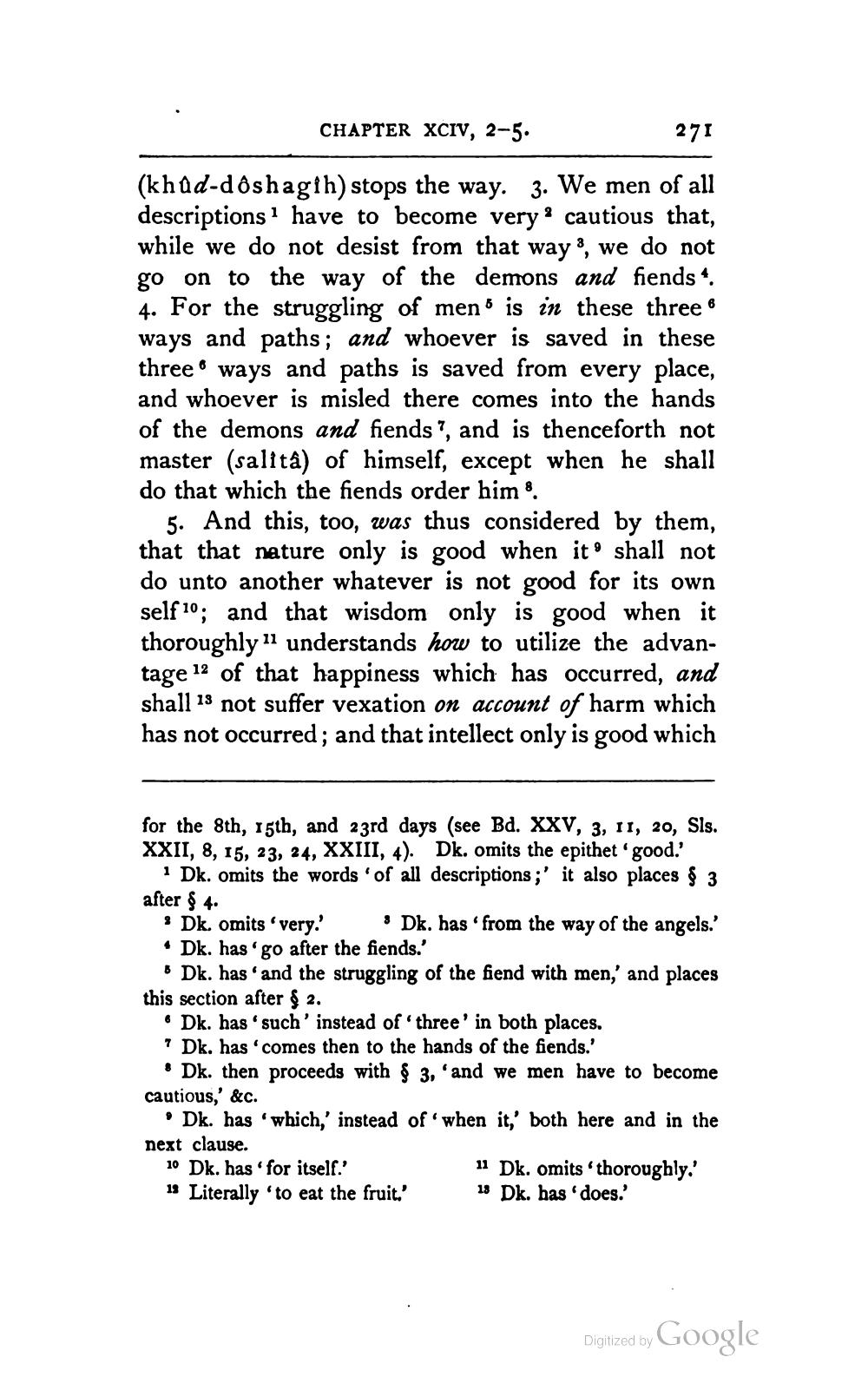________________
CHAPTER XCIV, 2-5.
271
(khůd-dôshagih) stops the way. 3. We men of all descriptions have to become very ? cautious that, while we do not desist from that way 3, we do not go on to the way of the demons and fiends 4. 4. For the struggling of men is in these three 6 ways and paths; and whoever is saved in these three ways and paths is saved from every place, and whoever is misled there comes into the hands of the demons and fiends?, and is thenceforth not master (salita) of himself, except when he shall do that which the fiends order him.
5. And this, too, was thus considered by them, that that nature only is good when it shall not do unto another whatever is not good for its own self 10; and that wisdom only is good when it thoroughly 11 understands how to utilize the advantage 12 of that happiness which has occurred, and shall 18 not suffer vexation on account of harm which has not occurred; and that intellect only is good which
for the 8th, 15th, and 23rd days (see Bd. XXV, 3, 11, 20, Sls. XXII, 8, 15, 23, 24, XXIII, 4). Dk. omits the epithet 'good.'
1 Dk. omits the words of all descriptions ;' it also places $ 3. after § 4.
• Dk. has' from the way of the angels.' • Dk. has go after the fiends.'
* Dk. has and the struggling of the fiend with men,' and places this section after $ 2.
6 Dk. has such' instead of three' in both places. ? Dk. has comes then to the hands of the fiends.'
. Dk. then proceeds with $ 3, and we men have to become cautious,' &c.
. Dk. has 'which,' instead of when it,' both here and in the next clause. 10 Dk. has for itself.'
11 Dk. omits thoroughly.' 19 Literally 'to eat the fruit.' 13 Dk. has does.
Digitized by Google




